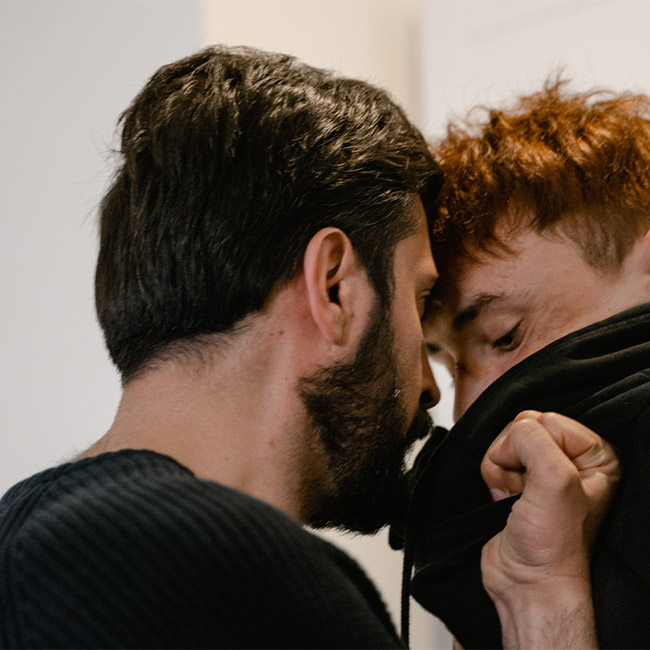Experienced lawyers in traffic law and drug offences
Domestic Violence Lawyer

Domestic Violence & AVOS
When someone is served with a Provisional AVO, they have the option to oppose or consent to the AVO being made on a Final basis. It is important to get the right legal advice as soon as someone has been served.
If you or someone you know have been served with an AVO, it is important to get the right legal advice. We can assist you with the available options and appear as your advocate in Court. We understand that it is extremely important to get it right the first time, as there may be grave consequences if an AVO is made. We strive to alleviate any stress associated with being charged with a criminal offence or served with an AVO, and will work tirelessly to strategically prepare and present your case.
Our team of experienced lawyers will meticulously prepare and present your case to the Court. Our lawyers are available 24 hours a day, 7 days a week. Contact us Now!
Apprehended Violence Orders (AVOs)
At Criminal Law Group, we can help you understand your rights if you have been named as a defendant in an AVO application. Our office understands the impact that being unfairly named the subject of an AVO application can have on your life, and the implications this may have on your firearm and security licenses.
We can provide you with legal advice, explain the effect of the AVO and guide you through the Court process to get the AVO dismissed or varied.

Types of AVOs
There are two types of Apprehended Violence Orders (AVOs):
Firstly, Apprehended Domestic Violence Orders (ADVOs) that protect a person from domestic violence by a person whom the PINOP has a domestic relationship with, such as a spouse, ex-partner, or parent.
Secondly, Apprehended Personal Violence Orders (APVOs) that protect a person from violence by other persons, such as a neighbour, co-worker, or friend.
In deciding what type of AVO is made in a particular case, the most important consideration is the nature of the relationship between the PINOP and the defendant.
AVO Conditions in NSW
All Apprehended Violence Orders prohibit you from:
- Assaulting, threatening, molesting, harassing, or interfering with the protected person.
- Stalking or intimidating the protected person; and
- Intentionally or recklessly destroying or damaging any property belonging to the protected person.
Other kinds of restrictions that could be put in place are:
- A condition preventing you from going to where the protected person lives (even if it is your home too), works, or studies.
- A condition preventing you from approaching or contacting the protected person at all.
- A condition preventing you from approaching or contacting the protected person within 12 hours of consuming alcohol or illicit drugs.
What is an AVO?
An AVO is a Court order typically made by the police on behalf of a protected person (known as a PINOP – person in need of protection), to ensure the protection of that person.
More specifically, an AVO aims to protect the PINOP from harassment, intimidation, violence, stalking and property damage from another person (‘the defendant’) who has caused them to fear for their safety.
Importantly, AVO proceedings are civil in nature, not criminal. The difference will be explored in more detail throughout the article.
Who Can Apply for an AVO?
An application for an order can be made by a person for whose protection the order is sought, or a police officer.
It is very common for Police to make applications on behalf of persons in need of protection.
Can I Change/Vary my Conditions?
Yes, it is possible to change the conditions of your AVO. The changes can operate to delete, vary, or add to any existing conditions.
An application to vary the AVO conditions can be made by defendant, the police, or the protected person.
A variation is commonly sought when the AVO prohibits the defendant from having any contact or residing with the protected person even though both parties wish to reside together.
An AVO variation can allow you to return home and can also facilitate contact with your children.
What to do When Served with an AVO Application?
If you have been served with an AVO application, you can do one of the following things:
- Consent to the AVO.
- Oppose the AVO.
- Make a cross-application.
If you consent to the AVO, the Court will make orders making a final AVO against you for the protection of the other person.
If you oppose the AVO or make a cross-application, the Court will adjourn the proceedings and set a timetable for the service of evidence relied upon by both sides. In other words, both sides will be required to file their evidence to the Court.
Usually, the evidence will consist of written statements made by both parties and other material such as text messages and photographs.
Following the filing of the evidence by both parties, the matter will be set down for a Hearing for the Court will assess the evidence and make a final decision.
As outlined above, AVO proceedings are civil in nature. This affects the standard of proof required. In criminal proceedings, for the Court to find you guilty of an offence, it must be satisfied beyond reasonable doubt that you have committed the alleged offence. On the other hand, in civil proceedings, the Court must be satisfied on the balance of probabilities that you have committed what is alleged. The difference between the two standards of proof is that in civil proceedings, the balance of probabilities means more probable than not, or using figures, 51% or more. In criminal proceedings, the accused must not be convicted if there is doubt that he or she have committed the alleged offence.
For an AVO to be made against you, the Court needs to be satisfied on the balance of probabilities (that it is more probable than not) that the person for whom the order is being made (the protected person) has reasonable grounds to fear and is fearful that you will commit an act of personal violence, such as intimidating, or stalking the person seeking protection.
How long will the AVO last?
The length of an Apprehended Violence Order is set by the Court and will typically operate for as long as it is deemed necessary to ensure the protected person’s protection and safety.
Generally, the Court will outline the Apprehended Violence Order’s duration. However, if the Court does not specify a duration, then a default period of 2 years will apply.
In practice, AVOs usually operate for a period ranging from six months to two years.
Will I have a criminal record?
As outlined earlier, AVO proceedings are civil in nature. This means that an AVO, on its own, will not result in a criminal conviction. In other words, if an AVO is made against you, it will not appear on your criminal record.
However, it is often thought that this means that an AVO will not affect your employment prospects and other aspects of your life. This is not necessarily true.
Are there associated charges?
It is common for Criminal charges to be made in addition to AVOs.
Typical charges that will typically accompany an AVO include:
- Common Assaults
- Assault Occasioning Actual Bodily Harm
- Contravene Apprehended Violence Order
- Intentionally Destroying/Damaging Property
- Stalk / Intimidate
- Use Carriage Service to Menace
Potential Effects of an AVO
Employment
AVO’s can affect employment prospects in at least three ways:
Firstly, if you apply for a position in child related employment, a prospective employer must do a ‘Working With Children Check’. This check will identify any final AVO which is made for the protection of a child. This means that if you are planning a career in any work that involves contact with children, an AVO can potentially limit your career prospects. In some cases, even those who work with children in a voluntary capacity need to undergo a ‘Working With Children Check’.
Read More
Secondly, a person who has an AVO against them cannot have a firearms license while the AVO is in force, and for 10 years after it is finished. This means that if you have an AVO against you, your employment prospects in the security industry may be affected. Equally, if you work on a farm and need a firearm to carry out your work, an AVO will prevent you from carrying out that work.
Thirdly, even If our employment in in the security industry does not involve firearms, your security licence may still be cancelled if the commissioner of police doesn’t consider you to be a “fit and proper” person to hold a licence.
Family Court Proceedings
An AVO will affect ongoing family law proceedings. For example, when applying for a parenting order, any allegations of family violence including AVOs must be disclosed. The Family Court will consider the allegations of violence which formed the grounds for making the AVO before making orders. This is because the Court must be satisfied that any orders made will not affect the safety of the children or any family member.


Breaching an AVO
While having an AVO against you does not result in a criminal record, breaching an AVO is a serious criminal offence. The penalties for a breach of an AVO can be severe, including a sentence of up to 2 years imprisonment.
The sentence imposed for a breach of AVO will generally be more severe if the breach was violent in nature. In those circumstances, the law provides that the penalty must be imprisonment unless there are exceptional circumstances.
Get in Touch With The Best Lawyers
Our team of experienced lawyers will meticulously prepare and present your case to the Court. Our lawyers are available 24 hours a day, 7 days a week. Contact us Now!





As an exclusive criminal law practice, we are proud to offer professional criminal law services.
Information
Services
- Assault Offences
- Bail Applications
- Domestic Violence & AVOS
- Driving & Traffic Offences
- Drug Offences
- Dishonesty & Fraud Offences
- Firearms & Weapons Offences
- Local, District & Supreme Court
- RMS, Licence Appeals
- Robbery Offences
- Hearings/Trials
- Mental Health
- Assault Charges
- No Conviction
- Driving Under the Influence of Illicit Substances

